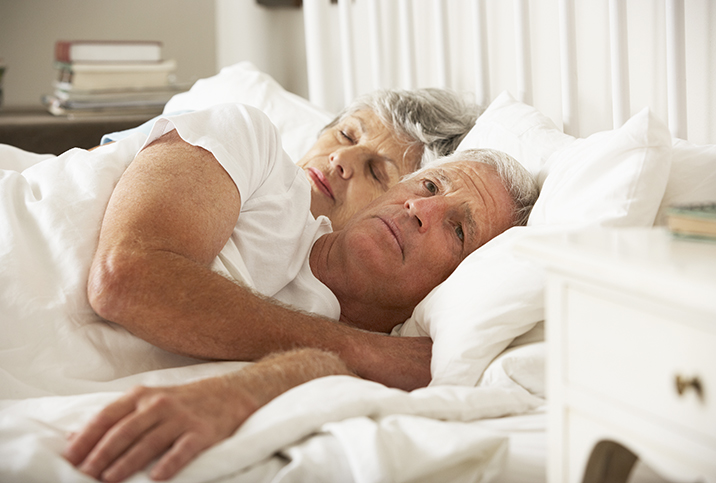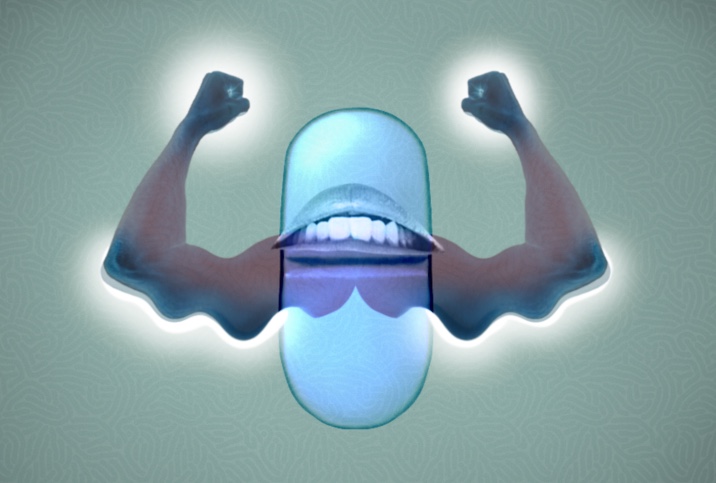The Impacts of Low-T Go Way Beyond the Bedroom

Produced primarily in the testicles, testosterone is a hormone that plays a significant role in a man's physical development, sex drive and overall health. It is responsible during puberty for triggering the deepening of a boy's voice, development of facial and body hair, increased sex drive and muscle strength, and sperm production.
Testosterone deficiency syndrome, or low testosterone—commonly referred to as low-T—occurs when the body doesn't produce enough of this hormone. Testosterone levels can vary significantly from person to person, but levels below 300 nanograms per deciliter (ng/dL) are considered clinically low, according to American Urological Association guidelines.
And while it's natural for testosterone levels to decline as men age, a steep or sudden decline can be an indication of underlying health problems, including low-T, a condition that can cause more problems than you might think.
What are the signs and symptoms of low testosterone?
For many men, the first obvious sign of low-T is a dip in libido and sexual function issues such as erectile dysfunction (ED). But it's important to note that the symptoms of low-T are often far-reaching, creating difficulties outside the bedroom, as well.
When men suffer a sudden decline in testosterone, they are often left feeling overly fatigued. Testosterone plays an important role in keeping the body strong and avoiding losing weight, so men with low-T often experience increased body fat as well as reduced muscle and bone mass. In fact, low testosterone is one risk factor for osteoporosis, which causes weak and brittle bones.
Medical research has also found an association between low-T and sleep disorders such as insomnia and sleep apnea. A lack of rest, along with the other physiological effects of low-T, is known to lead to increased irritability and even depression, which are also psychological factors associated with ED.
Some symptoms of low-T actually mirror those caused by menopause. When testosterone levels suddenly drop, the body's automatic responses can cause hot flashes, mood swings and hair loss.
While it's completely natural for testosterone levels to decline as you get older—levels drop about 1 percent each year after age 30 or so—it's important to speak to your doctor if you suspect a sudden or significant drop. This could be due to low-T, and while there are treatments that can help your testosterone levels bounce back, many of the symptoms caused by low-T can also be related to other serious health problems.
How can you treat and prevent low-T?
While it's not possible to prevent low-T caused by genetics or damage to the testes or pituitary gland, staying healthy can help you maintain normal testosterone levels, according to the Cleveland Clinic.
Your doctor might suggest testosterone replacement therapy (TRT) as a way to increase testosterone levels—treatment options include gels, creams, patches, pellets and injections—while symptoms can also be treated with therapy, antidepressants, sleep aids and more. Finding the right treatment will likely involve some trial and error, so patience is key.
If you're looking for ways to prevent low-T, medical experts have found that exercising regularly, including building muscle mass and maintaining a balanced diet, may help improve and maintain testosterone levels. Regular exercise is not only good for overall physical health, but it may provide sexual health benefits for both you and your partner.
A healthy diet full of fruits, vegetables, whole grains and fish can help with more than just low-T. It has also been proved to lower the risk of depression, anxiety, obesity and heart disease—all of which are conditions that can contribute to lowered libido.
Going through sudden changes, especially with your hormones and body, can make you feel like a stranger to yourself. If you're dealing with low-T, be sure to lean on your support system and cut yourself a break as your body adjusts. Dealing with low-T isn't easy, but you don't have to go through it alone.


















